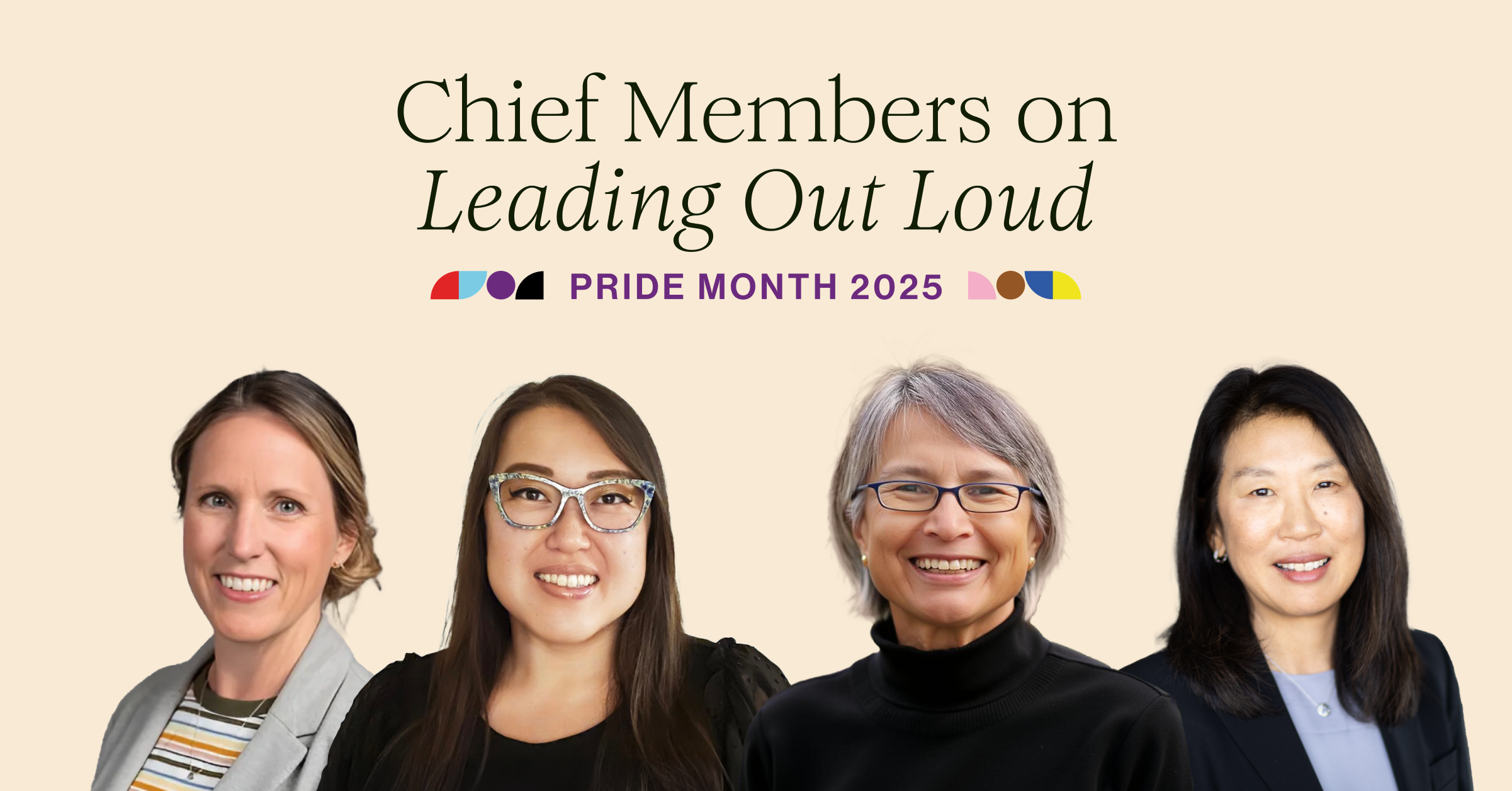In today’s climate of constant change, navigating uncertainty has become a core skill. Here, Chief Guide Ghita Filali shares insights drawn from her work with our Core and identity groups, offering practical strategies to lead through disruption.
After years of executive coaching, I’ve learned that handling uncertainty isn't about having all the answers, but rather developing a flexible, purposeful approach to lead through this dynamic. Here are five tips I offer Chief Members on how to turn a climate of uncertainty into a catalyst for intentional action.
1. Let emotions have a seat at the table
When facing significant change, we often experience what Cassandra Worthy, Fortune 500 consultant and author of Change Enthusiasm, describes as "signal emotions" — those uncomfortable feelings of frustration, anxiety, or uncertainty that arise when our world shifts. Rather than pushing these emotions away, what if we welcomed them as valuable guides — messengers pointing us toward growth? True transformation requires emotional commitment.
2. Shift from reaction to creation
During a recent coaching session with a business leader on guiding global transformation, they confided, "I feel no agency here. The company is restructuring, and there's industry disruption everywhere. Change is happening to me, not for me." When we dug deeper, they realized they were stuck in what I call "victim consciousness." They were experiencing change as something happening to them rather than for them.
I often share a coaching tool called the Drama Triangle to help them recognize emotional patterns. When we're at the bottom of the triangle, we're in reaction mode and feel change is happening to us. We've created an explanation for why change won't work (which, ironically, feels safer than facing uncertainty) and say things to ourselves like "I already know this won't succeed." This limits our agency and closes us off to possibilities. Instead, we can move to the top of the triangle, asking ourselves what we want to create. It’s this subtle shift that makes all the difference and helps us reclaim our agency, which we always have, even when circumstances feel imposed from above.
3. Disrupt the addiction to certainty
One pattern I've noticed repeatedly is what I call an "addiction to certainty." We crave the comfort of knowing exactly what's coming next. We'd rather stick with what's familiar, even if it’s not working for us, than step into the wild unknown. But meaningful transformation is what happens when we face the uncomfortable truth and step into that messy, uncertain space where we don't have all the answers. Instead of emphasizing solutions, project management, and data tracking, we can focus on the emotional commitment required. Supporting growth isn't just about time management or new skills, it's about developing the emotional courage to step away from what feels comfortable and occupy a new, unfamiliar space.
4. Balance operations with strategy
Many leaders stay comfortable in operational roles rather than developing a strategic future-forward vision. Consider: How might you create space for both?
There's a critical distinction between doing and being. How do you want to show up as a leader? Will you be an owner of your experience or do you show up as someone waiting to be handed opportunities? It can be helpful to reflect back on the years around the pandemic: Some people remained in survival mode, while others created entirely new paths, passions, and possibilities.
A theme that consistently emerges in my work is the importance of trusting yourself. You must cultivate clarity and purpose from within, even when you can't predict the outcome. Trust becomes paramount — trust in yourself, in your ability to generate opportunities, and in your capacity to create meaning.
5. Lead others by empowering, not rescuing
If you find yourself always helping others, consider whether you're preventing them from developing their own emotional courage and commitment. Hold space for discomfort. Model intentional vulnerability. And trust that others can grow, too.
As one COO I coached told her team during a tough quarter: “We don’t have all the answers, but we do have each other. Let’s figure it out, together.”

